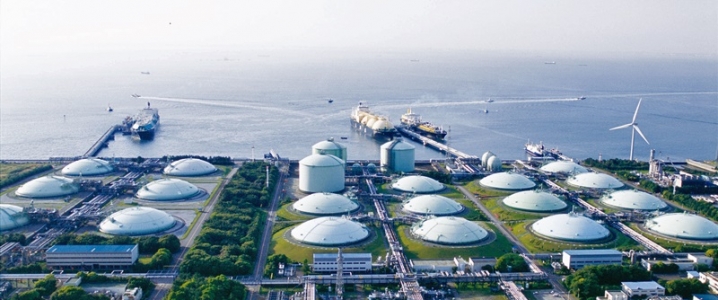In the aftermath of the Fukushima nuclear disaster in 2011 that forced the subsequent shutdown of Japan’s 50 plus nuclear reactors, the country’s reliance on then-overpriced LNG spiked. For years the following the disaster, Japan was not only dependent on the super-cooled fuel to make up gaps due to the elimination of nuclear power from its energy mix, but it was also overly reliant on long-term off-take agreements with restrictive contracts for LNG supply.
Before the Fukushima nuclear disaster, Japan’s dependence on fossil fuels was around 60 percent, while about 30 percent of electricity generated was from nuclear power. After Fukushima, for fiscal year (FY) 2015, 85 percent of electricity generated in Japan was from fossil fuels, with natural gas contributing some 44 percent.
Moreover, Japan’s increased LNG demand, already the world’s largest LNG buyer, forced prices for spot LNG in Asia to breach the $20 per million British thermal units (MMBtu) price point by February 2014. At the time, it looked as if Tokyo Gas, the country’s largest gas supplier and other Japanese utilities as well, would be at the mercy of LNG suppliers for years.
LNG market pivot
However, within two years more LNG production started to hit global markets, mostly from new Australian projects, and global LNG markets pivoted from one of thin supply to the current supply overhang that will likely persist until the start of the next decade if not longer, depending on the pace of Chinese LNG demand growth as well as LNG procurement stagnation in the Middle East. Related: EU Still Aims To Circumvent U.S. Sanctions On Iran
Now, Japanese utilities have their swagger back. They have been cutting LNG deals with more favorable contractual clauses, including the removal of restrictive destination clauses, and some have also become traders, both short term and pure spot trading.
Tokyo gas flexes it muscles
Against this background, Tokyo Gas plans to leverage its links with foreign partners or team up with other Japanese companies to chase deals, President & CEO Takashi Uchida said earlier this week. “We want to make an aggressive investment in Southeast Asia and North America this year to expand our LNG value chain,” he told Reuters in an interview.
Under a three-year business plan that kicked off last April, Tokyo Gas plans to spend 260 billion yen ($2.4 billion) to boost its earnings from abroad to 20 percent of its targeted operating profit of 130 billion yen in the year to March 2021, the report said. In the year to March 2018, earnings outside of Japan accounted for approximately 5.8 percent of its group operating profit of 116.3 billion yen.
“Since we have struggled to win any major overseas deals through auctions last year, we plan to seek one-on-one deals through our foreign partners or join forces with other Japanese companies,” Uchida added. Tokyo Gas is also reportedly eyeing LNG import terminal projects in the Philippines and Vietnam - two potential lucrative Southeast Asia markets for the super-cooled fuel. However, to date, the Philippines has yet to manage to build an operational LNG import terminal while Vietnam’s LNG plans are still under consideration. Last year, the U.S., soon to be the world’s third-largest LNG exporter, pledged to help Vietnam’s energy security status by providing smart, clean technology and developing LNG for the country’s power sector.
Tokyo Gas also said it wants to proactively seek new deals in renewable energy, including offshore wind power as the company aims to raise its equity interests in renewable energy to 600,000 kilowatts abroad by the mid-2020s from zero now.
By Tim Daiss for Oilprice.com
More Top Reads From Oilprice.com:
- The Next Big Threat For Oil Comes From China
- ExxonMobil Leads In Exploration Successes In 2018
- U.S. Oil Rig Count Falls Sharply As Oil Prices Climb


















